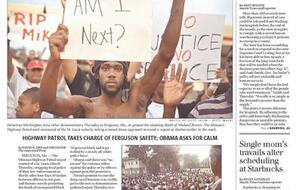Breadcrumb
Combating Confirmation Bias
At a Glance
Language
English — USSubject
- Civics & Citizenship
- History
- Social Studies
- Democracy & Civic Engagement
- Racism
Combating Confirmation Bias
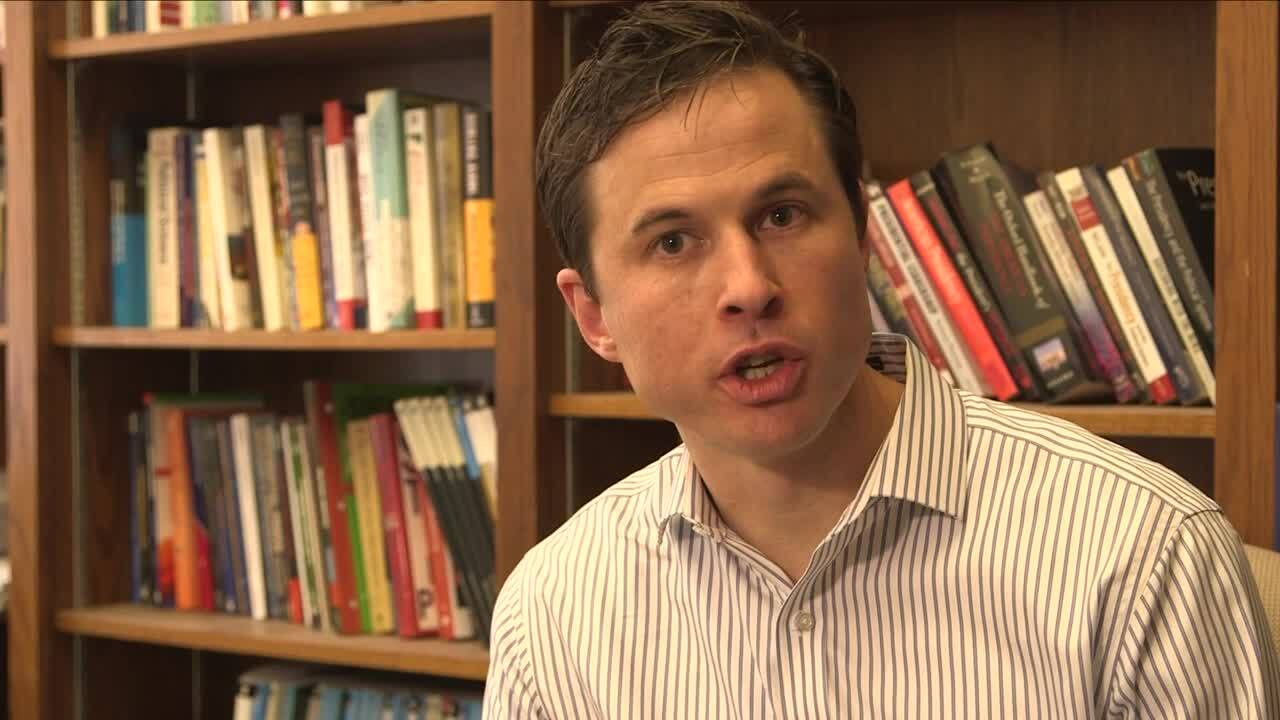
TOM ROSENSTIEL: We used to live in what you might call the trust me era of information. That was the era in which Walter Cronkite would finish his newscast by saying, And thats the way it is.
WALTER CRONKITE: And thats the way it is. Friday, March 6, 1981.
TOM ROSENSTIEL: And youd say, Well, this is CBS and thats Walter Cronkite. I trust this brand and thats why I watch it. We now operate in the show me era of information in which the consumer is really in charge and is saying, Show me why I should believe this.
But as we are acquiring facts about a new incident, we all have the capability to be open-minded enough to say, How do these new facts fit into my worldview? not How do these new facts necessarily confirm what I already believe. If we encounter every incident with that approach, the latter approach, then we never learn anything.
The first thing you have to do with confirmation bias is be explicit with yourself and others what your bias is. The worst confirmation bias is the one thats unacknowledged.
BROOKE GLADSTONE: You have to vary your media diet a little bit, like read something that you just wouldnt be inclined to read. Somebody who doesnt come from a political perspective that you have, but who is, you know, reasonable and civil and engages reliably with the facts. And keep taking in their perspective. Its incredibly helpful to just know whats going on in the world.
You make yourself meet the perspectives of people who seem so utterly other and so completely different from you, who seem to have values that make no sense at all, and you just try, by choosing good information, to figure out who they are, and thats really the only way to confront your biases.
But I have to tell you its physically kind of painful. Some of that confrontation can almost make you nauseous. It is really awful when the world is so complicated to start messing around with your own narrative and chipping away at it. And you know, very few people are really up to that task.
BRENDAN NYHAN: Its a hard question tohow you can be more unbiased, we all struggle with this questionmyself includedevery expert you watch on TV or hear on the radio or read in the newspaper is subject to the same biases that you are. These are fundamental aspects of human psychology and its important not towhat I would say isblame the victim for the way that sometimes people exploit these tendencies in us as human beings.
We can all try to be more even-handed in how we think about information. To think, Am I really being fair? To think about what another perspective on this evidence might be, how someone with a different point of view or different background might evaluate that information. Those can be helpful steps.
When our worldview is at stake, our identity or our point of view, thats when it can be most threatening to accept this kind of information thats uncomfortable. If you can put yourself in a frame of mind where you feel more comfortable admitting you might be wrong, that can sometimes help you be more unbiased. Theres some evidence to suggest thats true.
If you have narrow cluster social groups or reference groups or information sources, thats when you can get into these closed loops where youre simply hearing what people like you are saying and its easy under those circumstances for people to become polarized or to have distorted views of the evidence.
It may be tempting to mute the people who disagree with you in your Facebook or Twitter thread or to complain about that uncle who doesnt share your point of view, but they may actually be helping to diversify that information pool thats being put in front of you. And we should try to welcome that. It may not always be comfortable, it may be annoying or upsetting, and weve all opted out of having arguments in those settings because its often frustrating and difficult, but in terms of the information we see, having those diverse sources funneling in is important.
I think as members of a diverse society, we have an obligation to try to overcome our biases in living together and relating to each other as equals. And I think that as members of a democratic society, we have an obligation to uphold our civic responsibilities to each other as members of the society.
TOM ROSENSTIEL: The press, or journalists, and by journalists I mean anyone who is providing you with new information, can help us as citizens approach things with this more open-minded inquiry by being even more factual and more focused on verification in the way they present information.
And part of that is being more transparent in the presentation, giving people links and background on sources, and enabling the consumer, the citizen, to go navigate within that journalism on their own. The more we do that in the way we present it, the more youre inviting that kind of inquiry.
PAT GAUEN: This is hard work; news media consumerism is work. Its not easy, and people want to think that their vote counts when they go to the polls. Does the vote of someone who simply reads or listens to what he already believes, is that vote as good as a vote from someone who allows himself to be challenged?
JEAN BUCHANAN: Read against your grain. If you think that governments terrible, and we should, you know, all join the Tea Party, then you need to read some more moderate voices, and vice versa. If youre a liberal, I think you should read conservative voices. I think its really important to just understand that there are many points of view and usually the truth is somewhere in the middle.
KENYA VAUGHN: If you feel one way or the other, gather as much information about both sides as you can because you never know. I mean, in your feelings one way or the other you could possibly be wrong, you could totally be right but you could be wrong. I say you owe it to the community to gather as much information as possible on whatever you feel about a particular issue. That you owe it to the people who youre going to share it with to have an informed decision to share.
KRISSAH THOMPSON: I think thats part of the power of storytelling and the beauty of journalism is being able to expose people to lives and experiences that are not their own and hopefully that exposure begins to push against biases.
YAMICHE ALCINDOR: People who are interested in getting multiple sides of the story should really read multiple newspapers, watch multiple channels, watch MSNBC, watch Fox News, watch CNN, watch all the other different channels you can think ofVice and Currentand try to really look at news as a way that youre picking and choosing kind of all the different varieties and then you can maybe come together and make a decision.
I think also for me, I think people can be patient. Sometimes you get caught up in, okay, This is breaking right now and its all over Twitter and its all over this, and then you dont really ever check that story again to see what actually happened. So I think really also having patience with the story and, while you might want your information right away, try to give people time to really collect the facts because thats what Im trying to do. While its breaking on Twitter, Im the one calling the police, Im the one trying to figure out what actually happened, and a lot of times that means the narrative at 9am can be completely different at 7pm.
LARRY MORRIS: I think thats something thats important with media today: even though things are faster, that doesnt necessarily mean we have to be as fast. We have to sometimes learn to pull ourselves out of a situation, evaluate, and then jump back into it. And its hard, its really hard. As much as I wanted to gravitate towards the MSNBCs on their perspective, I also would watch Fox cause I wanted to understand what they thought of the situation.
KORAN ADDO: People just have to decide, I mean, do they want to be informed or do they want to read something that makes them comfortable? And I guess thats really what it comes down to: Do you want to be comfortable, or do you want to be informed?
GILBERT BAILON: Read everything, consume everything, but be discreet with what youre believing because theres a lot of garbage out there or things that are being bent for a certain direction. Thats the world we live in. Were not going to change that. Were not going to make these things go away, but be smart about how youre consuming news.
Combating Confirmation Bias
You might also be interested in…
#IfTheyGunnedMeDown

The Impact of Identity
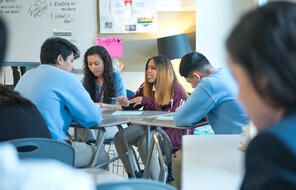
The Power of Images
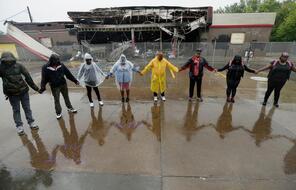
Preparing Students for Difficult Conversations
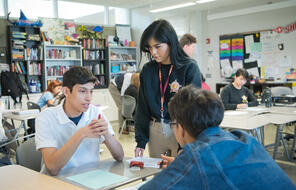
Social Media and Ferguson
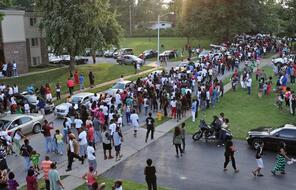
Verifying Breaking News
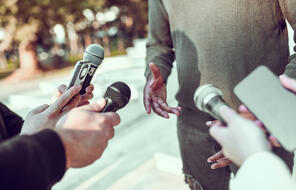
Facing Ferguson: News Literacy in a Digital Age

Reflecting on George Floyd’s Death and Police Violence Towards Black Americans

Responding to the Insurrection at the US Capitol

The Hope and Fragility of Democracy in the United States
What Happened During the Insurrection at the US Capitol and Why?
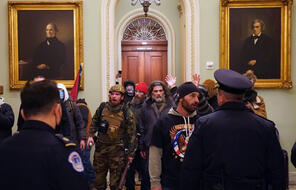
The Importance of a Free Press
